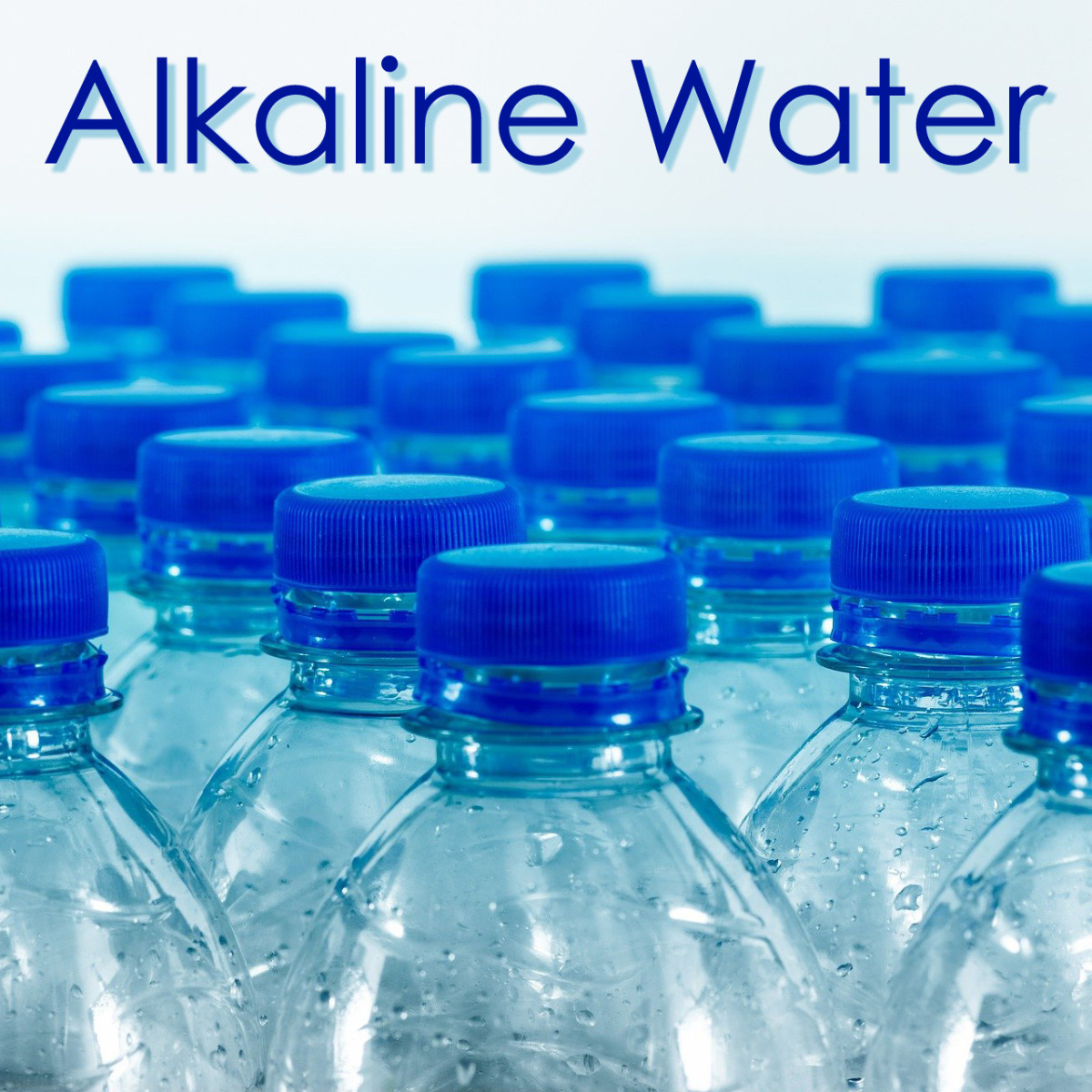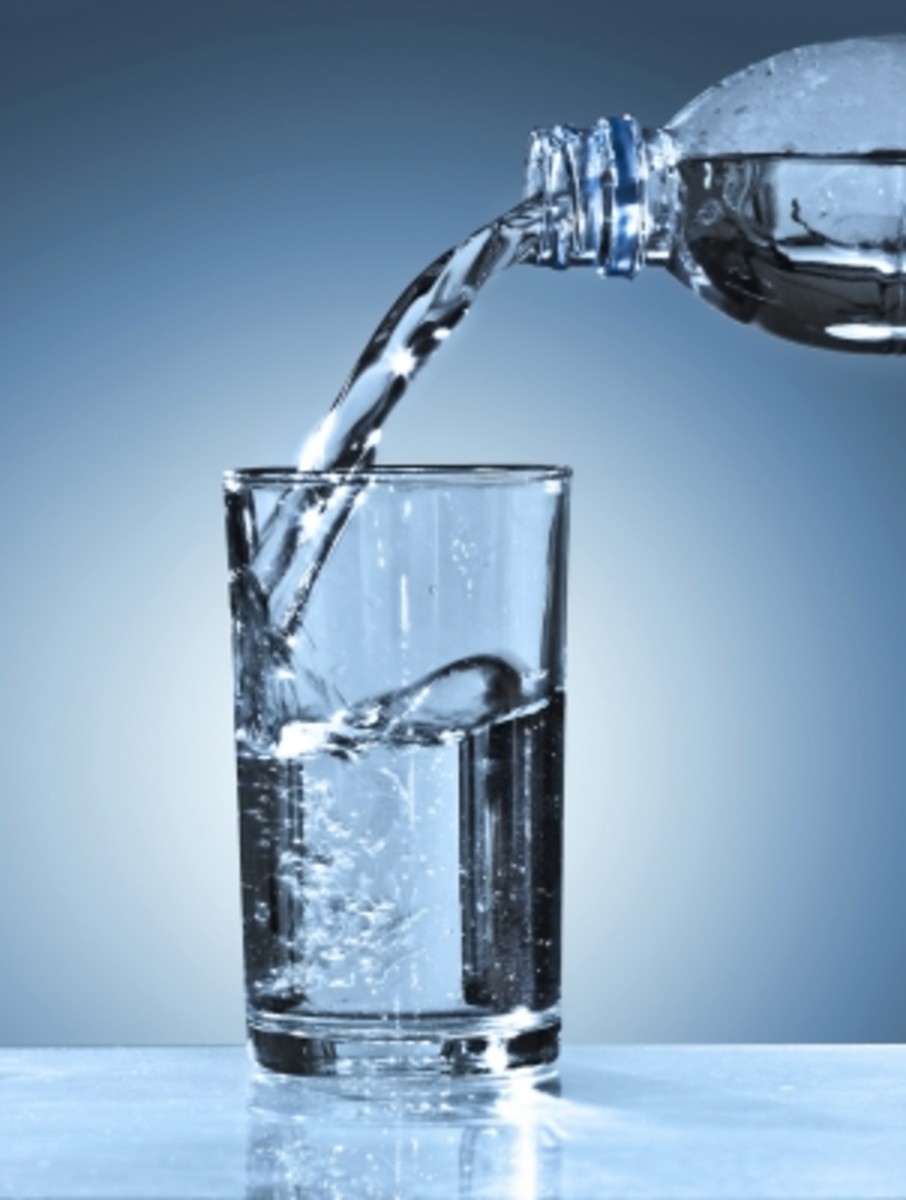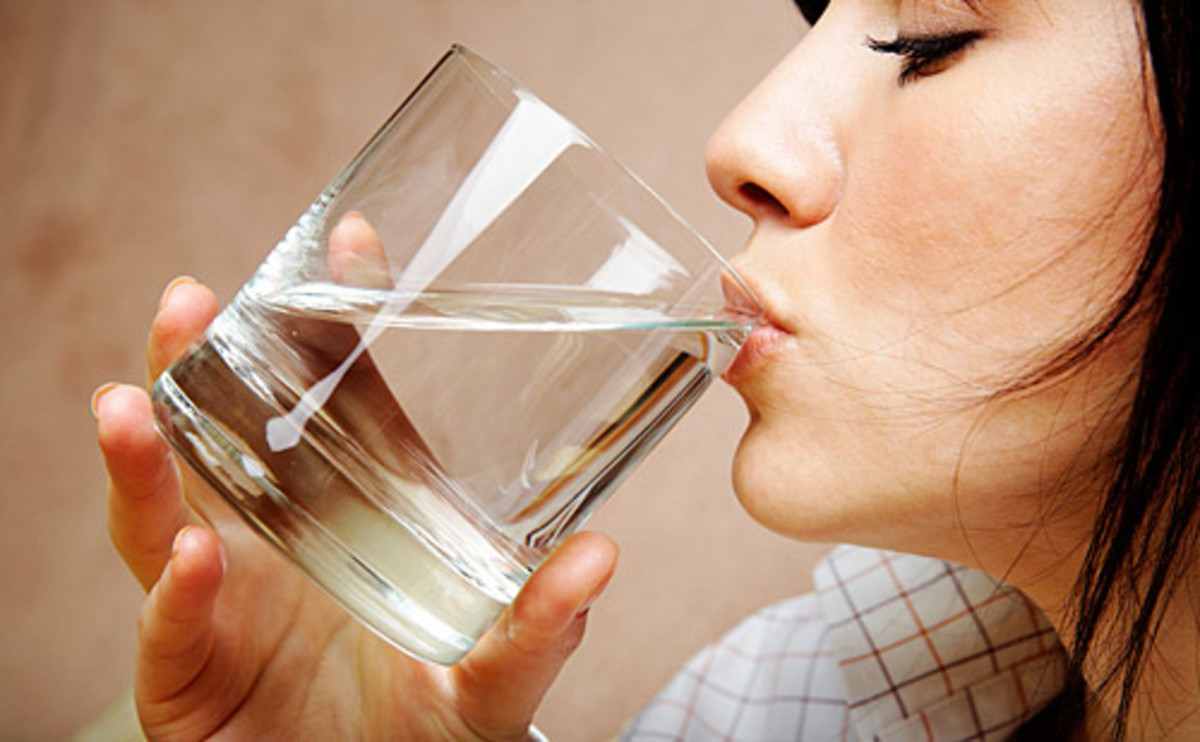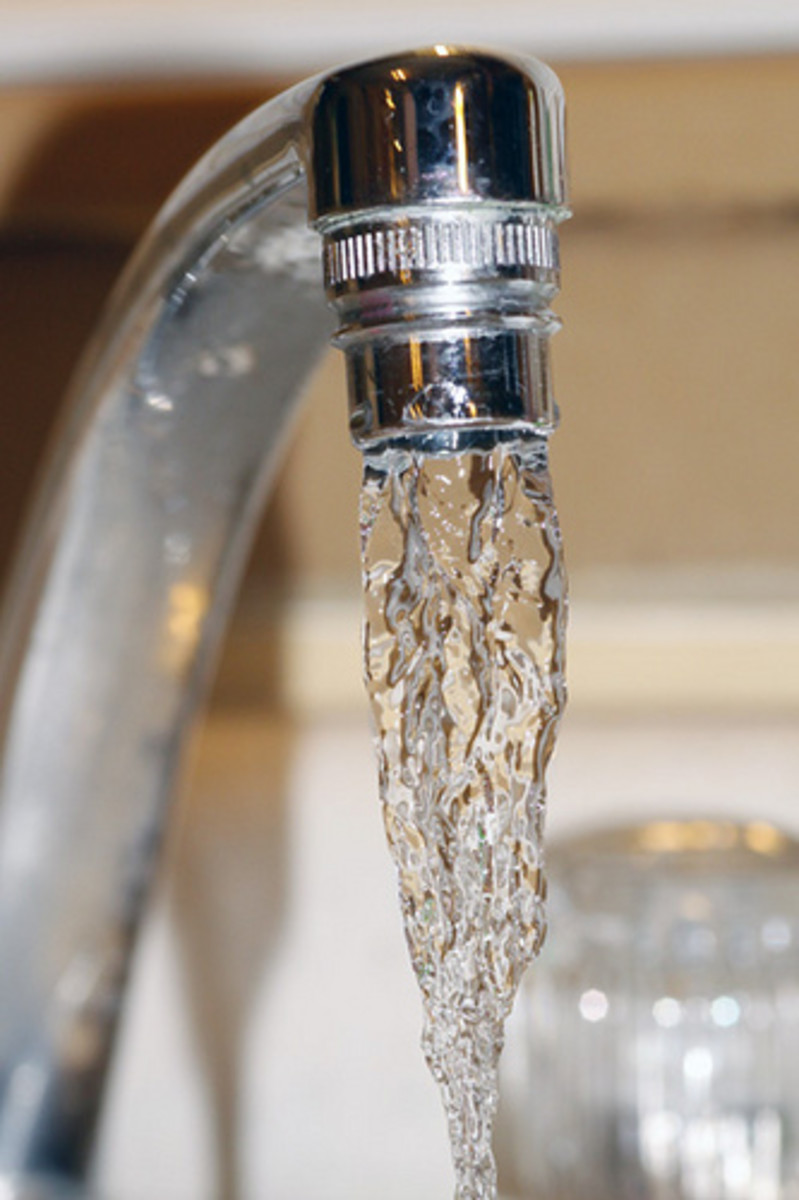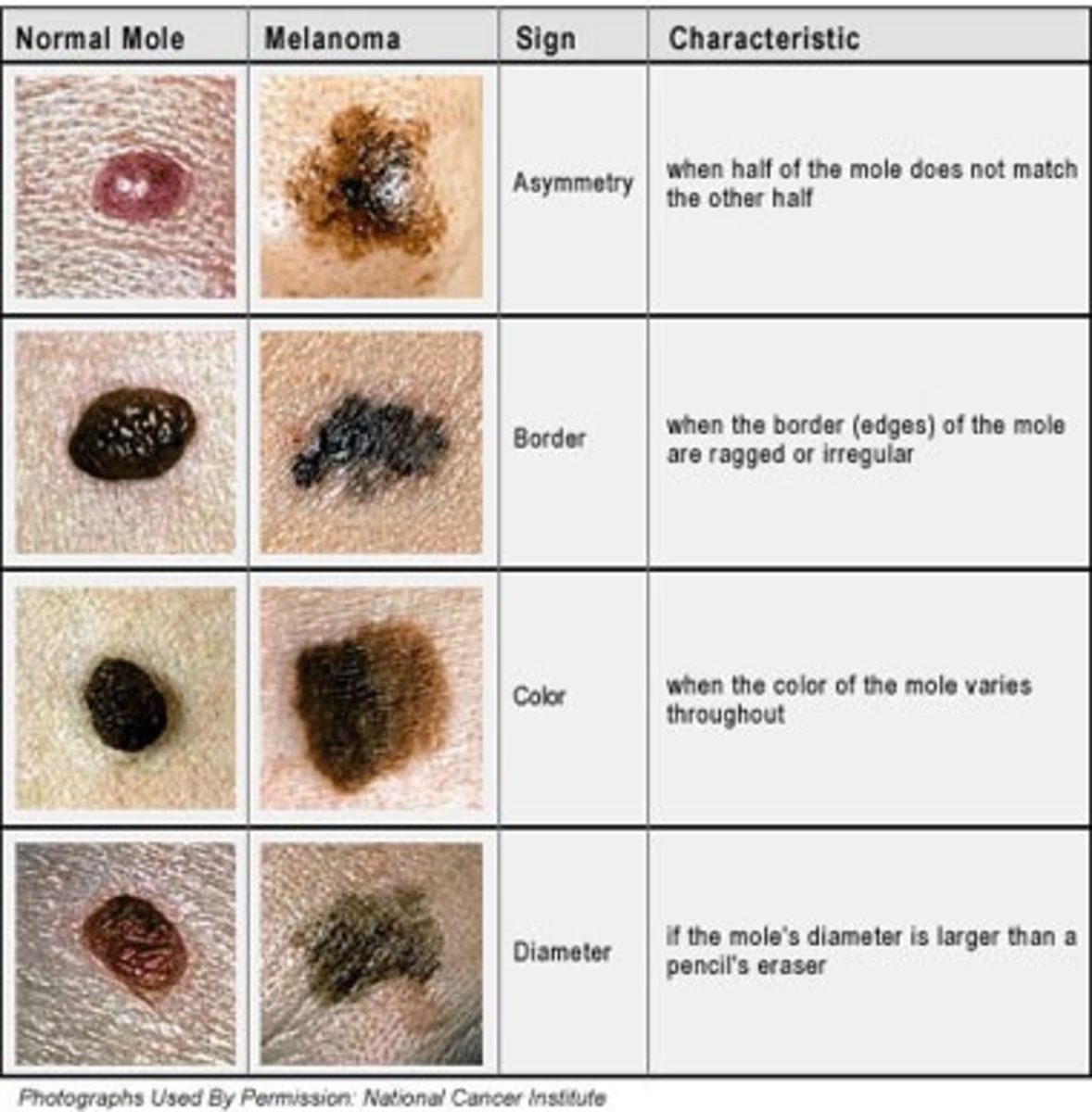Which Water to Drink, How to Drink Water?
Which water to drink, how to drink water?
Which water to drink, how to drink water?
Water is the source of life, and you should drink water no matter how high or low you are. Wading products available in the market are manifold, mineral water, mineral water, pure water, natural drinking water can only be considered to be of reasonable average quality, as well as charcoal water, month of water, glacier water, alkaline water, small molecules of water etc.. There are various strange consumptions and concepts. How do our people choose so many concepts?
1. What is mineral water?
Mineral water is pure water with only a small amount of minerals. It is made by purifying domestic drinking water (tap water), adding minerals and sterilizing the cans. The purpose of adding minerals is not really because these minerals are not so nutritious and sufficient, but because they can meet the taste requirements of consumers. By adding mineral salt, you can make the taste of mineral water close to plain boiled water or mineral water.
2. What is mineral water?
Mineral water is spontaneously percolating deep underground or collected by drilling. It has strict requirements on the source of water. It will have to undergo exploration and evaluation by the Geological and Mining Department and take measures to conserve the water source. It can be understood as a mineral resource. The price of mineral water is relatively high, mainly due to the high cost of water resources, not the magical effect of trace minerals.
Since mineral water comes from deep underground, its composition is greatly influenced by the composition of rock formations, so it contains more elements than domestic drinking water, such as antimony, barium, boron, nickel, silver, in domestic drinking water. e.t.c. . They are just unconventional indicators.
Mineral water is often rich in micro nutrients such as strontium and selenium. In fact, my colleague has measured many types of mineral water. The content of these substances is no more than tap water, and some are worse than tap water.
3. What is pure water?
Pure water is made of water that meets the sanitary standards of domestic drinking water, and is generated through ion exchange, reverse osmosis, and distillation. It has a low ion content, low water hardness and almost no minerals, it will not form a scale when used to boil water. Developed countries and regions have very high penetration rates of pure water, which can reach more than 80%, and residents of the Middle East drink almost pure water.
4. Is drinking mineral water healthy?
Beijing's "best family to drink water" claims not to drink tap water for 20 years. The reason is not that tap water is unsafe, but that it is "healthier to drink mineral water." The comment has been criticised by many, questioning whether it is self-promotion for the mineral water brand.
The theoretical basis of the expert comes from a literature report. However, it is also mentioned in the literature that people who drink mineral water have a great stir and become tall, which is high-end western style fairy water! In fact, when it exceeds the one-way point index of mineral water, it will need to consider whether other confounding factors, such as nutritional status, socioeconomic status, and so on. In fact, "better than other mineral waters."
5. Are the minerals in water good for your health?
Minerals usually refer to inorganic salts. The most common are sodium, potassium, calcium, magnesium carbonate and meta silicate in water. There are other elements in water, such as iron, zinc, manganese, molybdenum, vanadium and so on. There is no denying that these elements are needed by the human body, but the main way to get these nutrients is three meals a day. In general, if you are not missing, drinking mineral water may not cause you to eat too much; if you are deficient, drinking mineral water also does not return water. Promote how good the minerals are in the water, usually those who sell mineral water, mineral water and other water related products.
6. Mineral water is rich in calcium, which can prevent osteoporosis?
The average sugar eats around 400 mg of calcium a day, and the adult daily reference intake is around 800–1200 mg (we use 1000 for easy calculation), which means there is a difference of about 600 mg on average. High mineral content of calcium, but also 30-40 milligrams per liter, as adults played the full count from 1 tin of drink. 2 liters would go to about 70 milligrams, equivalent to a reference difference of 7%, a calcium intake interval of 12 %. If you rely on drinking water to add calcium, then you need to drink 17 liters of water a day, which amounts to a large bucket of water. Therefore, relying on mineral water to add calcium or prevent osteoporosis is not reliable.
Calcium mainly depends on dietary intake and nutritional supplements. Legumes and dairy products are good sources of calcium, as two tofus contain 80 mg of calcium and 100 ml of milk contains 100 mg. If you need calcium supplements in addition to balanced nutrition, you can choose foods with high calcium content, or "high calcium", "calcium rich", etc., according to the nutritional content on the food label. For example, a high-calorie biscuit that I eat in the morning contains 300 milligrams of calcium per 100 grams. If calcium deficiency is more severe, you can appropriately include some dietary supplements, such as common calcium pills, on your doctor's advice.
7. Is it unhealthy to drink pure water for a long time?
Some people say that although pure water filters useful minerals, prolonged drinking will dissolve and release trace elements in the body, which is not good for health. First of all, the main way we take in nutrients is through diet. Minerals in water are only a very small part. Secondly, nutritional elements are not as simple as flushing water and people do not sieve.
For example, some people say that drinking pure water will lead to calcium deficiency, but in fact, the most important factor for deficiencies is insufficient dietary calcium intake, which leads to hormone levels, VD levels, sun exposure, and physical activity. It is also related to. It is not related to what water we drink. If you drink pure water, you will lack calcium. So how do the people of the Middle East live? They basically drink pure water.
Others say that drinking pure water will lead to osteoporosis and will lead to osteoporosis, a lack of understanding of human physiology. The concentration of ions in human body fluids is relatively balanced, and calcium ions are no exception. The body fluid of a 60 kg adult is 36–42 kg, and the amount of water consumed in a day is only 2 liters. How much can this affect calcium ion concentrations? The main reasons for calcium deficiency are age, hormone levels, and dietary intake. Calcium accumulation of bones is not like dirty things on clothes. Just rub them with soap.
In fact, developed countries have been drinking pure water for decades, and the penetration rate of pure water has exceeded 80%. I have not heard of anyone who has trouble drinking pure water. In general, most of these people sell mineral water, mineral water or other wading products.
8. Can drinking hard water for a long time can cause stones?
People of the dynasty always liked to intimidate themselves. The water is soft and afraid of calcium deficiency, and the water is hard and afraid of stones. In fact, there are many factors that cause stones, in particular their own metabolic abnormalities, and they are also related to climate, dietary composition, genetics, and other factors. Epidemiological findings found that water hardness and the occurrence of stones are not necessarily related, both in areas with high water hardness and low stones, and in areas with low water hardness.
If you look at a more macro perspective, even in hard water, the mineral content is still minimal compared to a meal with three meals a day. Adequate drinking water can prevent the formation of stones to some extent, as urine can be diluted to reduce crystallization of salts and precipitation.
9. Is alkaline water healthy?
Whether weakly acidic or weakly alkaline water, the drinking stomach has become acidic, as we have a stomach pH value of 2.0 hydrochloric acid. Then when we reach the intestine, does the water become alkaline again? This is the environment that our digestive system bacteria love.
Our body is a precise buffer system. For example, the normal pH range of blood is 7.35 to 7.45. Only in this way can we guarantee normal bodily functions. The weak alkalinity of water comes from minerals, such as carbonates and meta silicates, but the physiological effects of these trace minerals on the human body cannot be compared with macro nutrients from the diet. Even so-called acidic foods and alkaline foods cannot greatly change the pH environment of our body fluids, let alone water?
10. Would you like to drink a sports drink?
Sports drinks are primarily to replenish energy and accelerate fatigue after exercise. Its ingredients often contain some sugars and vitamins, and some sodium and potassium elements are also added to meet the lack of sweat. This form of drinking water is not suitable for the general population, especially those with diabetes. If people sitting in the office drink sports drinks as water, then it is obviously unhealthy. Apart from having a lot of energy, they can also consume more sodium. Since it is called a sports drink, we still ask everyone to get more legs and bring more sweat, and then consider whether to drink a sports drink!
11. Is juice more nutritious and healthy?
Now that everyone's standard of living has improved and their health is more important, some parents feel that giving juice to their children is more nutritious than water. Some parents have used the juice as a water for their children since childhood.
In fact, fruit juice can never replace fruits, because the pulp also contains a lot of other nutrients such as dietary fiber, and also a strong satiety, and it will not eat too much. Now parents generally know that they do not give their children high carbonated carbonated drinks, and fruit juice is rich in sugar. When drinking water, it consumes excessive energy. Parents should make their children thirsty and drink white water at an early age, while they encourage their children to eat fruits instead of drinking various fruit drinks.
12. Drinking water overnight, steamer water and a thousand rolls of water Will it cause cancer?
These waters are boiled water, some are stored for a long time, and some are boiled over and over again. It is rumored that these waters contain many nitrates. Drinking them can cause poisoning, severe loss of consciousness, and nitrite cancer.
Prolonged storage, prolonged boiling, and repeated distillation can convert some of the nitrate in the nitrate to water, but the nitrate content in the water is very low, and does not allow the boiling nitrate to rise in a vacuum And it can be changed. In nitrite.
For the carcinogenesis of nitrite in water, it is slightly exaggerated. Nitrite itself is not carcinogenic. It is carcinogenic when converted to nitrosamines, and has many prerequisites for conversion, not boiling water.
Everything is toxic, the key is dosage. Symptoms of toxicity transmitted online include food poisoning due to the use of nitrite as table salt, often in catering units or mass canteens, and usually requiring toxicities greater than 200 mg. And there is very little nitrite in the water, even if boiled repeatedly or the steamer water only exceeds 100 micrograms per liter, it is necessary to drink 1 ton of water to reach the amount of nitrite poisoning.
Nitrite is a legal food additive, and is also used in Europe and America. The ADI is 0.07 mg / kg, which is equivalent to eating 4.2 mg per day for 60 kg adults. We get far more nitrate and nitrite from processed foods and vegetables than water. If you are afraid of any such thing in the water, I am afraid that you can only go on hunger strike.
Some people say that drinking too much nitrate is not good, so I recommend drinking boiled water, as the limit for nitrate in domestic drinking water (tap water) is 10 mg per liter (ground water source 20 mg), and minerals. Water is 45 mg. Also, why can't I drink water overnight? Can I drink it for 12 hours a day? Does water have to wait for darkness to do bad things? Also, why do steamers drink water? It is not necessary to save water. Is it not good to water the flowers in the steamer, wash the dishes and flush the toilet?
13. Bromate problems in the water.
Bromate has a definite carcinogenicity for laboratory animals, but no direct evidence has been found in humans, so the International Cancer Research Agency has classified it as "probably carcinogenic to humans" (type 2B). It is produced by the ozone disinfection process. By the action of ozone, bromide is naturally incorporated into water.
China has set bromate limits of both 0.01 mg per liter in terms of international standards, such as the "Hygiene Standard for Drinking Water" and the "Food Safety Standard for Drinking Natural Mineral Water". Water below this threshold value will not cause health problems throughout life. Even if it sometimes exceeds the standard, it will in fact have little effect on health, but it can only be monitored. Consumers need not be surprised.
14. Is there any chlorine problem in tap water?
Water disinfection is usually made directly with chlorine gas or by using chlorine dioxide and other chlorides to form hypochlorous acid and free chlorine, which produces a bactericidal and antibacterial effect. Tap water contains a certain amount of "residual chlorine" to keep it clean and hygienic when its water passes through the plant pipe network and reaches your home. The "bleach powder flavor" is often called chlorine. The harmless residual chlorine concentration calculated from animal experiments is about 5 mg per liter, which is much higher than the national standard control level of residual chlorine, so it is generally safe.
Like ozone disinfection, disinfection with chlorine also produces some by-products. With regard to free chlorine, by the time it boils, it will almost run out, so don't worry. For other chlorides formed in small amounts, the World Health Organization believes that the health risks they pose are much less than those caused by non-sterilization diseases. From the perspective of risk-benefit analysis, chlorination is undoubtedly more profitable for consumer health.
15. Are springs and streams in the mountains pollution-free and healthy?
Wild springs and falls seem very natural, but it is difficult to say if they are safe. For example, they may be contaminated by bacteria and parasites in "pure natural" wildlife feces. Weather and geological activities can also affect water quality, so monitoring of water quality should be strengthened after an earthquake.
Whether it is bottled water, bottled water or tap water, ultimately there is quality control by producers and supervision and oversight by regulators. Although this may not be sufficiently good, and some problems of excessive standards and pollution can be found from time to time, overall safety is guaranteed.
The most basic suggestion is not to collect water from wild water sources, especially unfamiliar water sources, yet water sources. If you drink, try to collect water from the top, do not store it for a long time, and boil it before drinking to prevent foodborne diseases caused by microorganisms.
16. Is "small molecule cluster water" more favorable for Absorption?
According to legend, "captive water", which is meant for maternal drinks, promotes "small molecule water" (also called small molecule water), which is good for absorption. The so-called "macro molecule water" is a cluster formed by dozens of water molecules with hydrogen bonds, and "small molecule water" is a small cluster formed by many water molecules, but the hydrogen bond itself has a weak binding force, so no matter what type of collective structure is unstable.
Businesses blow "small molecule clusters of water" into the sky: In addition to the mother, the elderly can cleanse blood lipids and oxygen free radicals, and drinking to children can help with intellectual development. But currently, no water purifier can produce "small molecule cluster water", and there is no reliable literature that proves the magical effect of this water. All information about the efficacy of this water comes from selling such products. People. If you really want to drink "small molecule water", it is better to boil and drink when heated, because heating will also destroy "large molecule water" and become "small molecule water".
Similarly, there are various scientific concepts that can fog consumers in the cloud, such as magnetized water, quantum resonance information water, hydrogen-enriched water, oxygen-rich water, electrolyzed water, bio-ion energy catalytic water, and ion-recombinant water. Water. Do not believe it to be recognized by the scientific community.
17. How about a water dispenser?
Until the bottled water itself is qualified, there is nothing wrong with burning a water dispenser. Put bluntly, isn't it an electric kettle with a bucket? It should be noted that a large bucket of water is about 19 liters. It takes about a week for each person in a family of three to drink 1 liter of water. This time, bacteria can multiply in the bucket. Also, the cold water of the water dispenser is often contaminated with mold, so it is usually not recommended to drink cold water directly from the water dispenser, and do not use this water to flush baby milk. Do it Of course, people like me who have confidence in their stomachs are the exception.
In general, drinking fountains should be cleaned regularly. Families with small populations are not recommended to use drinking fountains. Directly boiling water is both economical and clean. The unit's water dispenser is cleaned regularly. It is fast to drink, and it is really good in hygiene. If you are not sure, drink hot water.
18. How about a water purifier?
In general, tap water is safe and reliable as long as it meets national standards. It is good water if it is boiled without the use of water purifiers. In fact, using a water purifier is primarily for psychological comfort. The origin of the tube is domestic, Japan, Germany, United States or Mars. The principle of water purifier is nothing more than activated carbon adsorption, ion exchange resin and reverse osmosis membrane. The key is that these consumables have to be replaced every few months. It is almost without any water purifier. Some water purifiers also contain mineral-rich components, which claim that dissolved minerals are more conducive to health. You must have this extra money to buy barn mineral water directly. In fact, it was a home game, with many pillars swinging, and it suddenly seemed high-tech and upscale.
In fact, the effectiveness of domestic water purifiers is purely soul, believe it is not good, as the machine has no quality control measures other than its own warranty. If maintenance is not good, it will be normal for bacteria and fungi to contaminate it, it has also become a source of secondary pollution of tap water.
Currently, some communities still manufacture purifiers. In fact, I'm not very optimistic about it. The reason is that it is only an enlarged version of a domestic water purifier and a smaller version of a water purification device for a bottled water enterprise. If it is not kept properly, it is also a virtue for the purification of household water.
19. How should consumers choose water scientifically?
The basic purpose of drinking water is to meet the body's water needs. Water is clearly a porter of nutrients and metabolic waste in the body. It is a carrier. No matter what water you drink, it is impossible to use as a source of nutrition, and has no magical effect. Therefore, as long as the water meets national standards, it can be consumed safely and safely, there is no question of "what kind of water is healthiest", and consumers are concerned about it. No need to do what kind of water to drink. Ensuring a balanced diet, adequate drinking water, proper exercise and a good lifestyle is the basic foundation of health.
20. How to drink water?
The average adult needs to add about 2 liters of water a day, where about 800 ml can be obtained from food, drink and therefore 1200 or so ml. If it is summer, or if you exercise a lot and sweat a lot, then you should drink more. The northern air is dry, and you can drink more water.
Drink a small amount of water several times and take the initiative to drink water intentionally, rather than when you feel thirsty, especially the elderly do not feel sensitive and need to replenish water on time. Wake up in the morning to drink a glass of water, do not drink water again and again before going to sleep at night so that the night of repeated times can be avoided. Do not drink a lot of water immediately after strenuous exercise, it is better to drink slowly. For people with stone constitution and people with kidney stones, a lot of water should be drunk to reduce the precipitation of urine.

